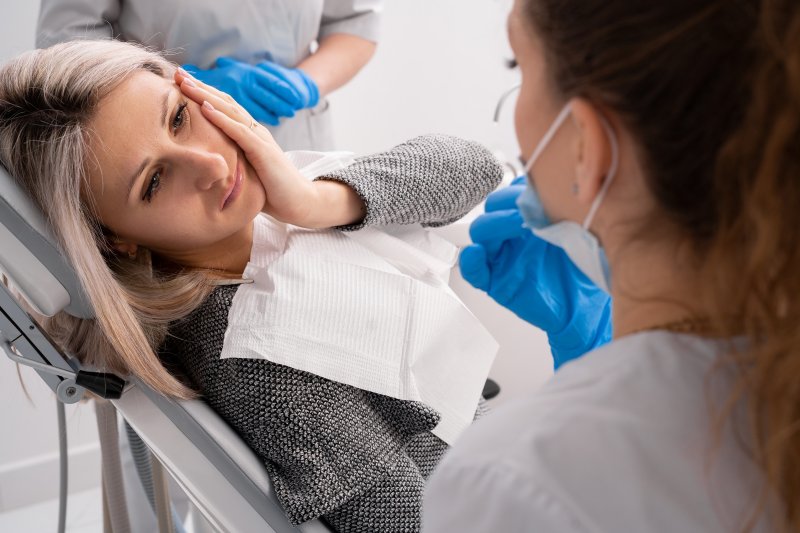
Dentures are remarkable restorative devices that can replace several, many, or all of a patient’s lost teeth, and they should be remarkably comfortable after you get used to wearing them. However, these appliances can lose their fit over time, and poor denture hygiene can lead to soft tissue irritation and infections. Here’s a brief guide to how denture sores form and how you can get rid of them.
How Do Denture Sores Form?
While your dentures should fit remarkably well when you first receive them, they do not address the underlying problem of jawbone atrophy that begins briefly after tooth loss. Over time, the jaw will change shape as it loses bone mass, which can eventually leave the denture not fitting well. When this happens, the appliance can slide about on the gum tissue, resulting in irritation, inflammation, and sores due to frequent friction.
Poor denture hygiene will only make this problem worse. Neglecting to clean your dentures properly and soak them daily will allow plaque and food debris to accumulate beneath the appliance. This buildup is the perfect breeding ground for harmful oral bacteria that can infect your soft tissues and cause bad breath.
How Can I Treat Denture Sores?
Thankfully, there are a number of excellent ways to reduce or get rid of denture sores. These include:
- Rinsing your mouth with warm salt water.
- Experimenting with using denture adhesives to help your appliance fit properly.
- Thoroughly brushing and flossing your dentures every day.
- Soaking your dentures in water or an approved soaking solution every night before bed.
- Brushing your soft oral tissues and using antibacterial mouthwash daily.
- Going for a few days without wearing your dentures so your mouth has some time to rest and heal.
- Using an oral analgesic to reduce pain and discomfort.
- Seeing your dentist so your dentures can be relined or adjusted.
While dentures are durable and long-lasting, they do not last forever and will eventually need to be replaced. Continuing to wear a denture that fits poorly can lead to increasing irritation as well as oral infections and injuries. If you aren’t sure how to get rid of your denture sores, consulting with your dentist can help you find the best way to wear your appliance comfortably.
About the Author
Dr. Luke Vernon earned his dental degree at the Indiana University School of Dentistry and has completed countless hours of continuing education coursework. He is proud to serve as a member of the American Dental Association and the Colorado Dental Association. His office in Denver offers general, restorative, and emergency dentistry. If you are struggling with denture sores, contact his office online or dial (720) 902-8080.
